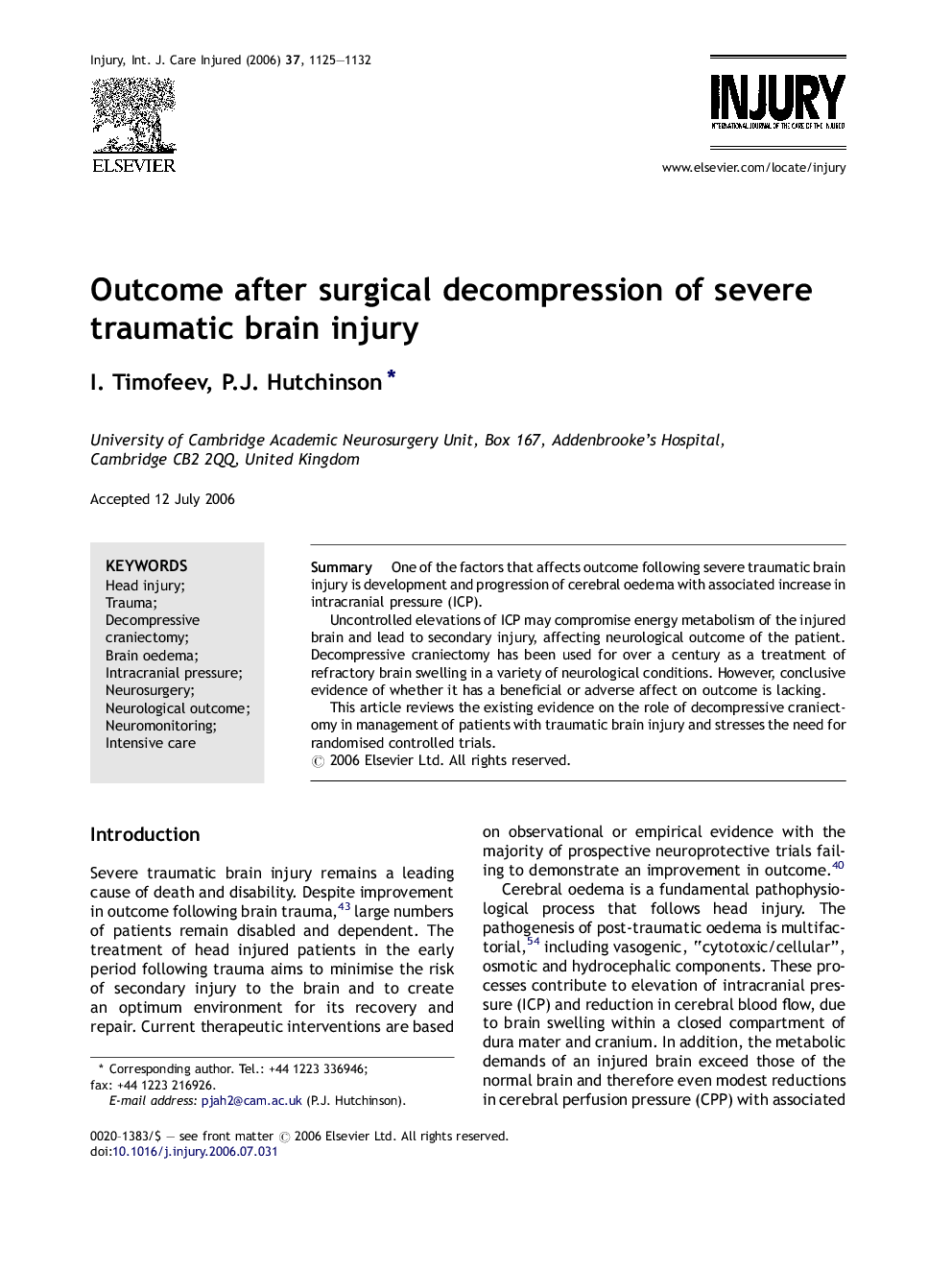| Article ID | Journal | Published Year | Pages | File Type |
|---|---|---|---|---|
| 3243183 | Injury | 2006 | 8 Pages |
SummaryOne of the factors that affects outcome following severe traumatic brain injury is development and progression of cerebral oedema with associated increase in intracranial pressure (ICP).Uncontrolled elevations of ICP may compromise energy metabolism of the injured brain and lead to secondary injury, affecting neurological outcome of the patient. Decompressive craniectomy has been used for over a century as a treatment of refractory brain swelling in a variety of neurological conditions. However, conclusive evidence of whether it has a beneficial or adverse affect on outcome is lacking.This article reviews the existing evidence on the role of decompressive craniectomy in management of patients with traumatic brain injury and stresses the need for randomised controlled trials.
